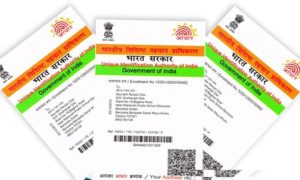India-UK Free Trade Agreement: Duty concessions on auto, confectionery items likely. Negotiations near conclusion, October or November possible
Protecting the interest of domestic players, India has kept demands of Britain on data-related issues and giving any kind of duty concessions on dairy sector out of the ambit of the proposed free trade agreement being negotiated between the two countries, sources said. However, India is looking at providing duty concessions on auto, and certain confectionery items, they said.
Read More: ATM Charges: Check Before You Withdraw Cash – Rules Of Top Banks In India
The negotiation for the agreement has reached a critical stage and in all likelihood, it could be concluded by October end or November. The talks received a great impetus due to the recent visit of Commerce and Industry Minister Piyush Goyal and Commerce Secretary Sunil Barthwal to London in July, where both held a series of meetings with different stakeholders including senior British officials.
The negotiation would get a further fillip during the meetings of trade ministers of India and the UK at the sidelines of G20 trade ministers meeting this month in Jaipur. “The visit of the Indian minister and secretary was very positive for the negotiations. Most of the issues are sorted out between the two countries,” one of the sources said.
To provide duty concessions in the automobile sector, several rounds of consultations have been held with the domestic players. In the dairy sector, India would not touch any product because of the sensitivities of the domestic players, they added.
As both India and UK are strong players in the services sectors, the two sides are negotiating hard for easing of norms in a number of sectors such as IT, healthcare, accounting, education, medical practices, banking, insurance, legal, and telecommunications. The UK has shown keen interest in areas like banking, insurance, legal, and telecommunications.
The UK firms have raised concerns over data localisations norms in India. Another official said that India and the UK are very close to concluding negotiations for a proposed free trade agreement as both sides are working to iron out differences on issues including investment treaty, intellectual property rights (IPRs) and rules of origin.
Read More: Indian Railways: How to book an entire coach or the train for a trip? Know process and cost
Out of the total 26 chapters in the FTA, 19 have been closed. In the rules of origin chapters, both countries are talking about product specific rules, value addition, and certification. The ’rules of origin’ provision prescribes minimal processing that should happen in an FTA country so that the final manufactured product may be called originating goods in that country.
Under this provision, a country that has inked an FTA with India cannot dump goods from some third country in the Indian market by just putting a label on it. It has to undertake a prescribed value addition in that product to export to India. Rules of origin norms help contain dumping of goods. Investment is being negotiated as a separate agreement (bilateral investment treaty) between India and the UK and it could be concluded simultaneously with the free trade agreement.
The bilateral trade between the countries increased to USD 20.36 billion in 2022-23 from USD 17.5 billion in 2021-22. India’s main exports to the UK are ready-made garments and textiles, gems and jewellery, engineering goods, petroleum and petrochemical products, transport equipment, spices, machinery and instruments, pharmaceuticals and marine products.
The main imports include precious and semi-precious stones, ores and metal scraps, engineering goods, professional instruments other than electronics, chemicals and machinery. In the services sector, the UK is the largest market in Europe for Indian IT services. In the field of investment, the UK is one of the top investors in India.
Read More: FASTag Balance: Want to check your FASTag balance? Try these 3 simple steps
In 2022-23, India received USD 1.74 billion in foreign direct investment from the UK as against USD 1 billion in 2021-22. During April 2000 and March 2023, investments stood at USD 33.9 billion.
Under such pacts, two trading partners significantly reduce or eliminate customs duties on the maximum number of goods traded between them, besides easing norms to promote trade in services and investments.





































